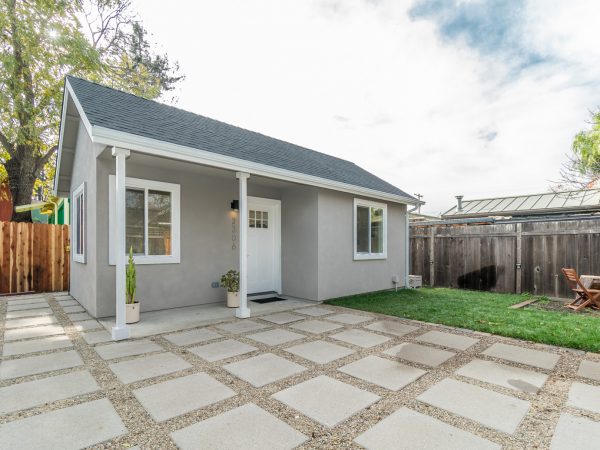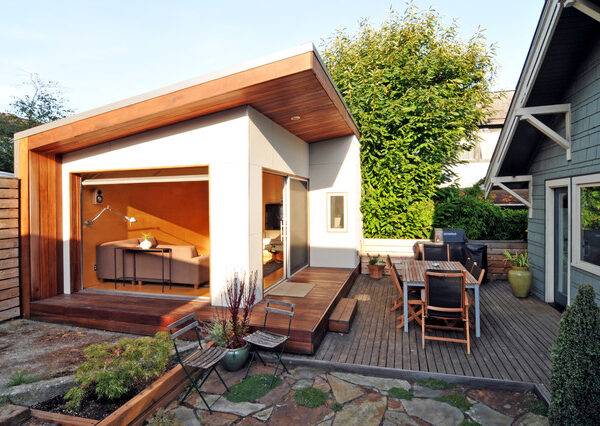Building an accessory dwelling unit (ADU) is an excellent way to optimize your space and add value to your property. However, added property taxes are a major concern for California homeowners due to the existence of Prop 13.
Here is everything you should know about ADU property taxes implications in the greater Los Angeles area.
Will Building an ADU Increase my Property Taxes?
The shortest answer is yes, but not too much. As with any other type of construction, the value of an ADU is included in the assessed value of a property.
In California, the property tax has been set at one percent of the assessed market value on all types of properties, and the annual tax hike cannot be more than two percent.
Los Angeles County Office of the Assessor conducts the reassessment of ADU property taxes upon the completion of the structure.

What is Prop 13?
Proposition 13, commonly known as Prop 13, is an amendment of the Constitution of California that caps the amount of property taxes that may increase in the state every year. The amendment was enacted in 1978.
The assessed value of properties that were last sold before 1976 is frozen at the level of the same year. The property tax of the properties that were sold after 1976 is assessed at one percent of their purchase price.
Prop 13 limits the annual tax cab to two percent or an amount equivalent to the inflation rate in the state (whichever is less) for future years.
For this reason, the tax assessments and bills of two identical properties with the same market value can be starkly different.
How Does Prop 13 Apply to ADUs?
When an ADU to a property, its assessed value is determined and it is taxed at one percent and up to two percent based on the Consumer Price Index (CPI).
For instance, if the assessed value of your new dwelling unit is $200,000, your tax bill will increase by $2,000 per year ($2100,000 x 1% = $2,000).
Will Construction of an ADU Will Trigger a Reassessment of My Entire Property?
No! The construction of a new secondary dwelling will not trigger a complete reassessment of the value of your property, and instead, a blended assessment will be conducted to determine the value of your new ADU.
What is a Blended Assessment?
A blended assessment means the added value of your new structure will be assessed independently, and the assessed value of your principal home will stay the same.
In other words, your new ADU tax will be blended with your current property tax.
Is Building an ADU Considered New Construction?
Many homeowners only consider adding square footage to the house as “new construction.”
However, as per the property tax laws of the city, remodeling an existing space or structure changes its use is also considered as new construction (i.e., the conversion of an existing garage into an ADU).

How is the Value of a New ADU Determined?
The County Office of the Assessor will take into account the total cost of construction or conduct a comparative market analysis to evaluate the estimated value of the newly-constructed ADU. Following the assessment, one percent tax rate will be added to your existing tax bill.
How Does the Assessor’s Office Examine the Value of an Unpermitted ADU?
In case of the legalization of an ADU built without obtaining necessary permits, the assessor will evaluate the unit to determine whether its value was reflected the original assessment.
In this scenario, bringing the unit up to the code will not trigger a reassessment of the unit, and there wouldn’t be any change to your property’s existing value.
However, if the ADU wasn’t included in the original assessment, the assessor will evaluate its market value, and you may have to pay back taxes.
Read more about how to remediate unpermitted work here.
Final Thoughts
The construction of an ADU might slightly increase your property tax; however, it will still be a win-win for you.
If you rent out your new unit, the passive income you generate can easily make up for any added property taxes. In the current Los Angeles rental market, the average rent for a one-bed ADU is $2,000 a month and for a two-bedroom ADU is $2,800 a month.
If you house a family member in the ADU, the added property taxes will only be a fraction of the cost of acquiring even a rental studio apartment in the city.
Additionally, building an ADU will considerably boost the resale value of your property.
Therefore, there is no reason to let small property taxes prevent you from building an ADU that can benefit you in countless ways.
Still Have Questions About ADU Tax Implications?
If you still have any questions about ADU tax implications in Los Angeles, reach out to us today at (323) 405-8909, and we will get back to you with the most accurate information.



